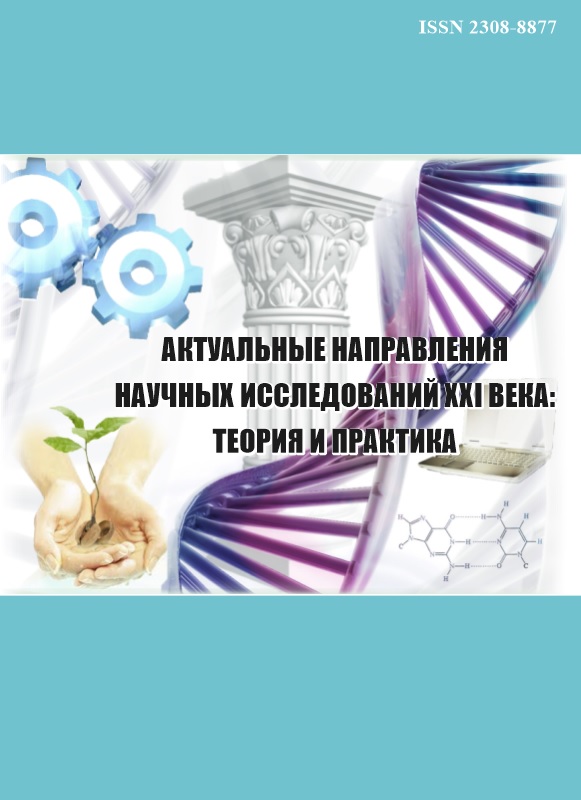UDC 33
The research is aimed at generalizing various classification approaches of integration associations in business on the basis of a literature review. The purpose of this article is to form the author's position on the classification of integration associations at the level of business structures. To achieve this goal, the following tasks are formulated: to comprehensively consider the phenomenon that formalizes the idea of business integration; to determine the target characteristics of the integration of business structures; to generalize approaches to the classification of integration associations in business; determine the prospects for the use of various forms of integration associations. The study uses a set of general logical methods of cognition: dialectical, systemic, generalizations, comparative analysis; methods of analysis of scientific literature. The main results presented in the study are the following: the author's interpretation of the term "integration" at the level of the business structure is given; the target integrations of business structures (motives, potential participants, relationships, possible forms of integration associations) are formulated and presented in the form of a scheme; According to the author, the most significant approaches to the classification of integration associations in business are systematized; a comparative characteristic of organizational forms of business integration is carried out, confirmed by practical examples. The main conclusion of the study is that the modern period of development is characterized by a variety of integration processes and relationships, so the choice of one or another form of integration association depends on the goals, motives, scope of activity, level of financial and economic development of potential integration participants.
integration, integration association, classification of business integration, synergistic effect, target characteristics of integration
Введение
Влияние новых технологических и поведенческих тенденций на функционирование бизнес-структур, усиление конкуренции ориентируют к поиску новых форм взаимоотношений с другими экономическими субъектами. Таким образом, современные тенденции создают условия для создания различных интеграционных объединений, позволяющих соединить весь воспроизводственный цикл в единую цепочку. При этом для экономических субъектов необходимо обоснованно подойти к вопросу осуществления выбора наиболее оптимальной формы интеграционного объединения из общего их многообразия. Несмотря на популярность темы интеграции в экономической литературе, на данный момент, в большинстве случаев, не систематизированы общие подходы к классификации интеграционных объединений, что и затрудняет оценку их эффективности в процессе формирования и применения в практической деятельности.
цель исследования
Цель данного исследования заключается в формировании определенной совокупности подходов к классификации интеграционных объединений в бизнесе на основе анализа научных литературных источников.
Материалы и методы исследования
При написании статьи автором использованы диалектический, системный методы исследования; обобщение и сравнительный анализ; методы анализа научной литературы, а также результаты авторских эмпирических исследований. Теоретическую базу статьи составили исследования российских и зарубежных ученых и специалистов в области интеграции.
1. Butrin, A.G. Ocenka i upravlenie integracionnymi processami v promyshlennosti/ A.G.Butrin, D.L. Yarushin //Sovremennye problemy nauki i obrazovaniya. - 2013. - №6 URL: http://www.science-education.ru/ru/article/view?id=11836 (data obrascheniya: 19.01.2021).
2. Vladimirova, I.G. Organizacionnye formy integracii kompaniy/ I.G.Vladimirova // Menedzhment v Rossii i za rubezhom. -1999. - № 6. - S. 15-21.
3. Glebova, I. S. Integracionnye processy kak faktor social'no-ekonomicheskogo razvitiya regiona/I.S.Glebova, D.V. Rodnyanskiy // Sovremennye problemy nauki i obrazovaniya. - 2013. -№1. - S. 284 -289.
4. Guzhva, E.G. Formy integracii predprinimatel'skih struktur: teoreticheskiy aspekt/ E.G.Guzhva, I.A.Agapov //Ekonomicheskoe vozrozhdenie Rossii. - 2011. - №3 (29). - S. 100-107.
5. Dmitrieva, G. S. Formy ob'edineniya predpriyatiy (organizaciy) v predprinimatel'skoy deyatel'nosti: ucheb. posobie / G. S. Dmi¬trieva; GUAP. - Sankt-Peterburg, 2018. - 83 s.- Bibliogr.: s.25-31.- ISBN 978-5-8088-1275-8
6. Ignat'ev, N.M. O ponyatii ekonomicheskoy integracii hozyaystvuyuschih sub'ektov/ N.M.Ignat'ev // Ekonomicheskiy zhurnal.- 2012. - № 3.- S. 32-38.
7. Malinova, I.A. Suschnost' integracii, ee formy i vidy/ I.A. Malinova //Vestnik ChGAA. - 2012. - T.62. - S. 119-122.
8. Matvienko, D.Yu. Formy integracionnyh ob'edineniy kompaniy/ D.Yu.Matvienko //Sovremennaya konkurenciya. - 2012. - №6. - S. 9-16.
9. Pischina, V.E. Osnovnye problemy uchastiya Rossii v processah ekonomicheskoy integracii na sovremennom etape razvitiya/ V.E. Pischina, O.A. Kryzhanovskaya, L.Yu. Tatarenko// Aktual'nye problemy razvitiya hozyaystvuyuschih sub'ektov, territoriy i sistem regional'nogo i municipal'nogo upravleniya: materialy HIV mezhdunarodnoy nauchno-prakticheskoy konferencii. - Kursk, 2019. - S. 164-169.
10. Rayzberg, B. A. Sovremennyy ekonomicheskiy slovar' / B.A. Rayzberg, L.Sh.Lozovskiy, E.V. Starodubceva; INFRA-M. - Moskva, 2011. - 505 s.- Bibliogr.: s.50-51.
11. Rodionova, O.A. Integraciya v sfere agropromyshlennogo proizvodstva: tendencii, mehanizmy realizacii: ucheb. posobie / O.A. Rodionova; RASHN VNIETUSH - Moskva, 2000. -172s. - Bibliogr.: s.79-83.
12. Sorokina, I.O. Klassifikaciya form integrirovannyh ob'edineniy/ I.O. Sorokina//Finansy i kredit. - 2009. - № 42 (378). - S. 46-52.
13. Cvetkov, V. A. Korporativnyy biznes: teoriya i praktika: monografiya / V.A. Cvetkov; Nestor-Istoriya. - Sankt-Peterburg, 2011. - 504 s.- Bibliogr.: s.205-208.
14. Reed, S.F. Corporate Growth by Strategic Planning (Part 1): Developing a Strategy. Mergers & Acquisitions, 1977, vol. 12, pp. 4-27
15. Sozinova, A.A. Formation of the new of management systems spatially localized economies in the paradigm of the cluster approach/ Androsova I.V., Abramov V.L., Tikhomirov E.A., Redin D.V., Oganesyan T.L. //International Review of Management and Marketing. 2016. T. 6. № S1. - pp. 250-256.










